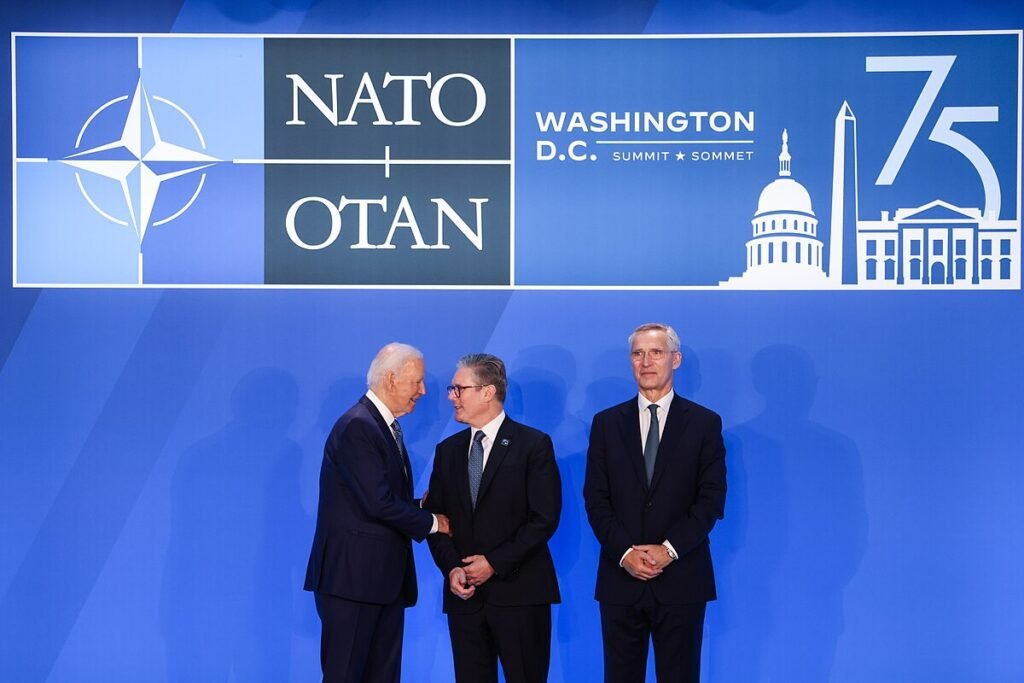At the NATO Summit in the United States, attention was paid to Keir Starmer, the UK’s newly elected Prime Minister, who solved body and soul the issue about the stand of the Labour Party towards Ukraine amidst intensification of geopolitical risks. It was a significant moment when Starmer officially attended the summit as a representative of the United Kingdom to emphasize the nation’s position on global defense and security for Ukraine.
Speaking to other NATO leaders, Starmer focused on the importance of defining the goal and acting as one to protect Ukraine’s independence. ‘I remain fully convinced that we must help Ukraine to defend against the Russian aggression’, Starmer said, reflecting the sentiments of the majority of the members.

Even though the summit was significant, the talks focused on the potential and future of the Ukrainian people as well as the realities of their daily life rather than just how to strategize for the next war or outwit one another in a game of political chess. Starmer understood this and this was clear when, through his speech, he vowed to continue providing help and assistance as surrounded all the people that were affected by some mishap. Indeed, he said that the people of Ukraine need support, and stated that ‘We will continue to support Ukrainian people in their fight for freedom and security there. ’ This has a human element to it since individuals are affected by geopolitical decisions.
The backdrop of the summit, commemorating 75 years of NATO’s existence, provided a poignant reminder of the alliance’s founding principles: Additionally, valued commonalities, membership in a joint desire to preserve peace, and collaboration in collective defense. Against this background, the promises made by Starmer sounded convincing, which is symbolic of the role of Britain as a loyal partner in unpredictable times.
In addition to the political staking and the leaders’ rhetoric, field interactions also showcased the human aspect of leadership: Starmer’s direct communication with the Ukrainian President Volodymyr Zelensky. The focus was made on realistic testimonies about the effects of the military assistance, the necessity of defense, and the ability of Ukrainian people to stand for their country.
For Starmer who recently vanquished his opponents in election to emerge as the leader of the British opposition and as such the potential future Prime Minister, the NATO Summit was a make or mar event where he could demonstrate his leadership prowess on the International arena. The meetings with the counterparts from EU countries and NATO marked work in partnership when addressing security threats, togetherness and determination in the times of crisis.
In conclusion, it is not only the internal policy of Starmer and the British Labour Party towards Ukraine but it is the evident desire of Britain to support the values of democracy and freedom. In the course of NATO amid difficult geopolitical realities, Starmer’s message symbolizes hope for members and defiance to opponents.
Thus, Starmer at the NATO Summit confirmed the United Kingdom’s position in terms of voluntary and collective security, and presented a human face in the midst of political negotiations. This desire for backing Ukraine goes beyond the political slogans: It echoes the fundamental values of protecting people and human rights in the world where those seem to be under threat.








